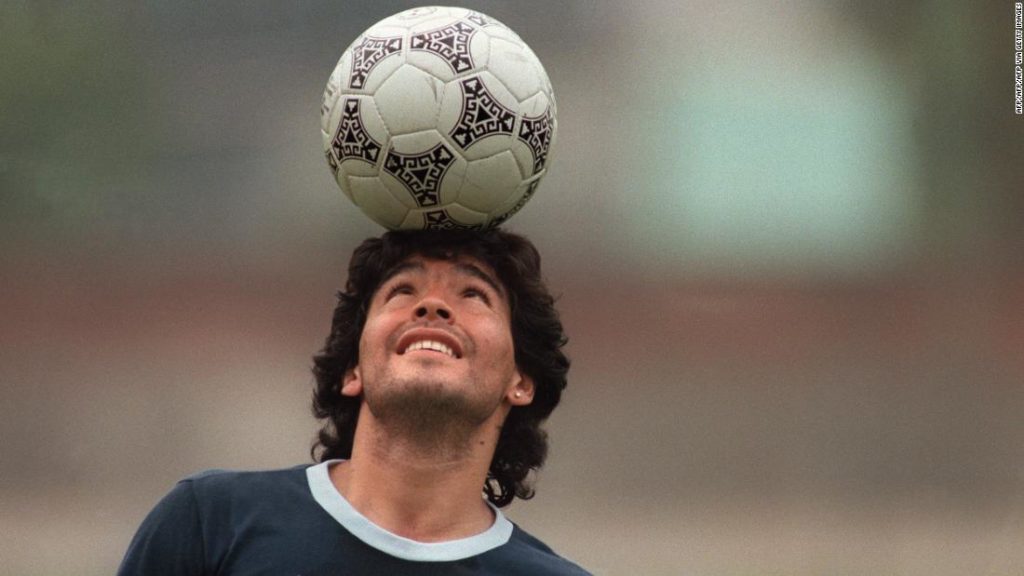Hoards of fans congregated at the palace in Buenos Aires after the doors opened for the general public at 6 a.m. local time on Thursday.
President Alberto Fernandez has already declared three days of mourning to honor Maradona — a national hero in Argentina widely regarded as one of the greatest football players of all time.
Maradona died from heart failure, a source from the Argentinian Justice Ministry present at the time of the autopsy told CNN en Espanol on Wednesday.
According to a press release from the attorney investigating the death, Maradona’s nephew Jonatan Espósito was the last person to see him alive on Tuesday.
At 11:30 a.m. on Wednesday, a personal psychologist — Carlos Díaz — and Maradona’s psychiatrist Agustina Cosachov found the former footballer unresponsive, at which point his nephew and assistant were called to try and wake him, according to the release.
“There weren’t any vital signs, so the nurse and psychiatrist came in and tried to perform CPR, but it was unsuccessful,” added the attorney’s statement.
“They asked for ambulances of different providers and in the meantime asked for a doctor … as well as a surgeon doctor who was a neighbor in the area.
“This man went upstairs and tried to reanimate the victim. Later on, the ambulances arrived along with the clinical doctor of the medical provider. He proceeded with resuscitation; he tried with syringes of adrenaline and atropine, finally declaring the death of the victim.”
Tributes have been paid by footballers past and present following Maradona’s death.
Argentine star Lionel Messi, seen by many as a modern-day Maradona, said he “keep(s) all the beautiful moments lived with him,” while Cristiano Ronaldo bid goodbye to an “eternal genius” and “unparalleled magician.”
Pele, another legend of the game, said he hopes one day the pair will “play football together in heaven.”
Maradona inspired Argentina to victory at the 1986 World Cup.
In the quarterfinal against England, he famously out-jumped goalkeeper Peter Shilton and punched the ball into the net — an act he later dubbed the “Hand of God” — before scoring one of the greatest goals the game has seen a few minutes later as he slalomed past seven English defenders to score.
The first goal was allowed to stand because the referee did not see the foul.
His glittering career, which included helping Napoli to its first league title in 1987, was also marked by numerous controversies and his notorious lifestyle led to alcoholism and addiction.
During his time in Naples, a city where he has achieved God-like status, Maradona came into contact with the Camorra — the Neapolitan mafia — and struggled with addiction. He failed a drug test in 1991 and received a 15-month ban from the game.
Napoli faces Rijeka in the Europa League on Thursday, where tributes are expected to be paid to the team’s most iconic player.
You may also like
-
Super League: UEFA forced to drop disciplinary proceedings against remaining clubs
-
Simone Biles says she ‘should have quit way before Tokyo’
-
Kyrie Irving: NBA star the latest to withhold vaccination status
-
Roger Hunt: English football mourns death of Liverpool striker and World Cup winner
-
‘Every single time I lift the bar, I’m just lifting my country up’: Shiva Karout’s quest for powerlifting glory

